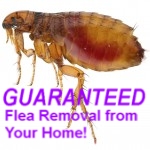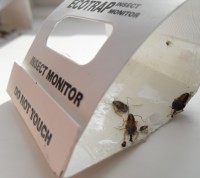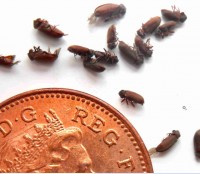We’re beating our competitors hands down in Norwich and across Norfolk for getting rid of your wasp nest again this year. Now in 2016, we still love making you happy to keep you wasp and sting-free. Have you been quoted over £60.00 for a standard wasp nest removal? Unless you’ve got hard earned money to burn, come to us. All work is covered by our guarantee of workmanship. We are contractors to most of Norwich’s letting agents and they entrust us with their work – so can you. After 20 years of controlling wasps we know how to eradicate wasp nests. My name is Richard Pummell and you can call me direct on 07999 805003 or 01603 905530. I am a wasp control expert. You’ll speak to me direct with no secretary, call centre or a usually disinterested pest control service manager. Also, we are fully insured and not a gardener controlling wasps in our spare time. I am directly responsible – how many people say that?
However, if you want to pay more – feel free. All pest control companies use the same insecticide to control wasps which is either bendiocarb or permethrin dust. It costs about £1.33 per shot and the rest is a labour charge (and running costs). It’s not rocket science, just how much profit a company wishes to make.
About wasps. Last year, due to cooler winds that were been backing from a northerly direction earlier in the year, wasps were slow to become a major pest in Norfolk. The first wasp nest removal in Norfolk we carried out in 2015 was during early May in Dereham. To date north Norwich, Watton and Wymondham have had the highest number of wasp and hornet nests received by the office. However, like last year the number of wasp nests throughout the England is way down in numbers. Experts believe that wasps nests were down by an incredible 80% in 2014 compared to 2013 – Except Yorkshire! Being temperature dependent insects, wasps will need some high temperatures throughout summer. Norfolk & Norwich Pest Control carry out a professional wasp and hornet nest eradication service for all of Norwich and Norfolk. Will it be a bad year for wasp stings in 2016? Will you avoid wasp stings?
Where do wasps come from? When a queen wasp emerges from her hibernaculum on a warm sunny day in spring, she commences to build a new nest from scratch that will initially be golf ball size and have a capacity of 15-20 cells. After laying eggs into individual cells, she will care and protect them as they emerge into grubs. As they remain at this stage of their life cycle, she will need to feed them with a constant assortment of garden insect material.
Many people ask me what functions do wasps have. The answer always is they are very beneficial to the gardener. Wasps forage for flies, caterpillars, greenflies etc to feed their grubs. If a nest generates several thousand wasps in the span of it’s life, that’s an awful lot of pests that are removed from the garden – without the use of insecticide. However, perhaps the negative aspects of wasps outweigh the single benefit. Best to have the nest removed.
The good news is that if warmth-loving insects such as wasps are going to do well this summer that means all insects will. This is of great benefit to our garden bird population that heavily depend on an early abundant insect population for their offspring. More on wasps later.
From the author, Richard Pummell, March 2016







